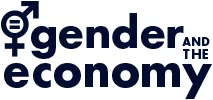Summary
Men entrepreneurs tend to raise more money for their startups than women entrepreneurs. In fact, research has shown that only 2% of venture capital financing in the United States is allotted to women founders, even though women-founded companies make up 40% of private companies in the United States. This research investigates how this gender gap in funding occurs, and how to close it. Through a field study at an annual startup launch competition from 2010 to 2016, and a subsequent controlled experiment with investors, the authors discovered that:
- Investors tend to ask men entrepreneurs “promotion” questions (related to the potential for growth) and ask women entrepreneurs “prevention” questions (related to the potential for loss or failure).
- The entrepreneurs who predominantly received promotion questions received significantly more funding than those who predominantly received prevention questions.
- To close the gap, investors can be more balanced in how they question men and women entrepreneurs. Additionally, women entrepreneurs can answer prevention questions in a promotion-focused way, i.e. pivot from a question about loss potential to an answer about growth potential instead.
Only 2% of venture capital funding is allotted to women founders, even though women-founded companies make up 40% of private companies in the US.
Research
The authors in this study use the regulatory focus theory to explain the gender gap in startup funding. Regulatory focus theory suggests that there are two motivations in goal-directed behaviour: 1) promotion, which focuses on attaining gains, and 2) prevention, which focuses on maintaining non-losses. For example, a promotion question related to customers would be, “How do you want to acquire customers?” A prevention question would be, “How long do customers stay?”
The authors theorized that during venture capitalist question and answer sessions investors are more likely to ask promotion questions to men entrepreneurs and prevention questions to women entrepreneurs. In turn, men and women answer in a promotion and prevention-focused way, respectively. Men are then perceived as driven towards growth and advancement, while women are perceived as concerned with losses and safety. The authors hypothesized that since a prevention focus casts doubt on an entrepreneurs’ abilities, this behaviour thus reduces women’s funding outcomes.
To investigate, the authors first conducted a field study analyzing video footage of question and answer interactions between venture capitalists and entrepreneurs at TechCrunch Disrupt Startup Battlefield, a competition for companies to gain investor funding. The footage was of yearly competitions from 2010 to 2016 and included 189 companies with a demonstrated need for venture capital. Question and answer sessions lasted the same amount of time for each company. The authors analyzed both the types of questions asked and the gender of speakers, and finally, how these factors may have affected funding outcomes.
The second study was a controlled experiment, where the authors gave a survey to 194 angel investors and 106 potential seed investors. In the survey, investors received a scenario where they could allocate funding to four ventures based on how the ventures’ founders responded to ten questions. The questions and answers were presented as audio scripts consisting of different combinations of male and female voices, as well as promotion and prevention-focused questions and answers.
Findings
Study 1: The perceived gender of an entrepreneur influenced what types of question investors asked, and in turn, the funds that the entrepreneur received. Women entrepreneurs received significantly more prevention questions than promotion questions. Further, entrepreneurs who predominantly received promotion questions raised an average of $16.8 million, while those who predominantly received prevention questions raised an average of $2.3 million—a difference of over 7 times. For every additional prevention question asked, entrepreneurs received $3.8 million less funding. This occurred even when controlling for startup age, startup quality score, past experience, and capital needs.
Study 2: Angel investors allocated 2 times more funding to entrepreneurs with promotion questions and answers, compared to those with prevention questions and answers. However, when entrepreneurs gave a promotion answer to a prevention question, they received 1.6 to 1.7 times more funding than those who gave a prevention answer to a prevention question. This suggests that entrepreneurs can avoid the disadvantages of prevention questions by answering them in a growth-oriented way.
Women entrepreneurs received more prevention rather than promotion questions, and thus missed significant funding opportunites.
Implications
- Both men and women investors need to recognize implicit gender bias–While some have suggested that increasing the number of women investors may increase funding for women entrepreneurs, this study found that regardless of their gender, investors asked promotion questions to men and prevention questions to women. Both men and women investors should recognize their preconceived uncertainties about women’s businesses, and balance their questioning accordingly. Research has suggested that standardized questions can interrupt bias in job interviews. This lesson might usefully be applied in venture capital Q&A sessions where investors could ask both promotion and prevention questions of all ventures. Research has suggested that standardized questions can interrupt bias in job interviews. This lesson might usefully be applied in venture capital Q&A sessions where investors could ask both promotion and prevention questions of all ventures.
- Women entrepreneurs can modify their answers to mitigate the gender funding gap–Although the implicit gender bias at the root of the funding gap needs to change, this research implies that women entrepreneurs can gain more funding by answering prevention questions with a promotion focus. For instance, if an entrepreneur is asked about how she plans to defend her company’s market share in a competitive market, she could answer by explaining how the company can uniquely gain an advantage in such a fast-growing market.
Title
We Ask Men to Win and Women Not to Lose: Closing the Gender Gap in Startup Funding
Authors
Dana Kanze, Laura Huang, Mark A. Conley and E. Tory Higgins
Source
Academy of Management Journal
Published
2018
DOI
Link
https://journals.aom.org/doi/10.5465/amj.2016.1215







